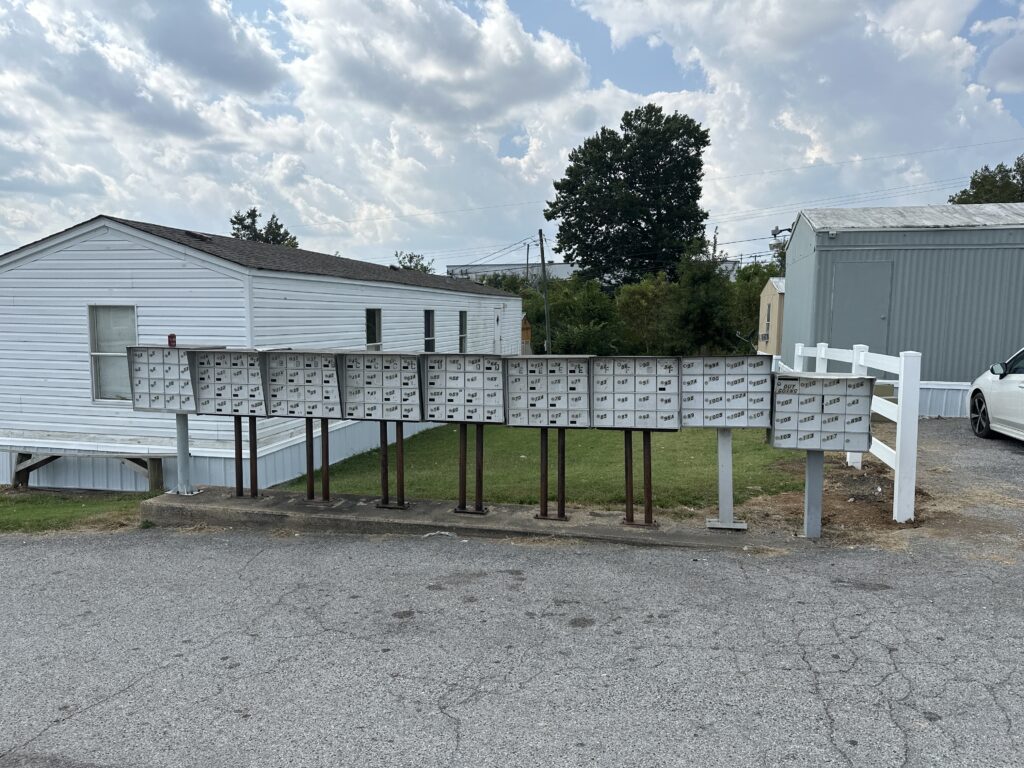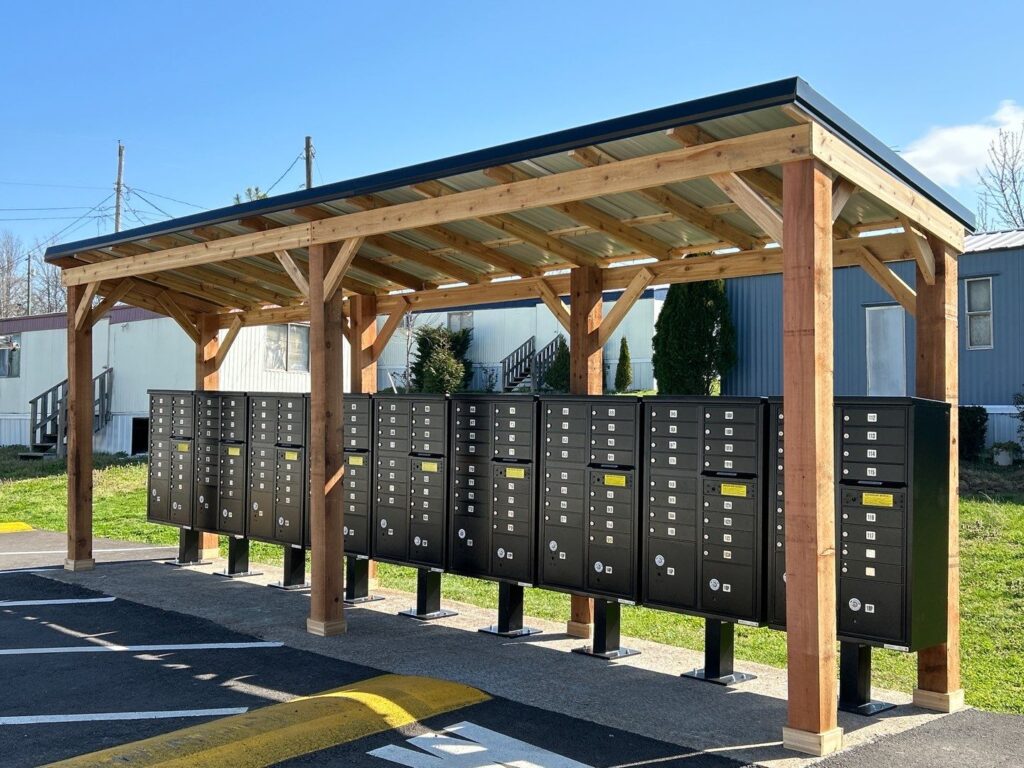Real Estate Private Equity Firms Revitalizing Affordable Housing
-
 Tristan Hunter - Investor Relations
Tristan Hunter - Investor Relations
Real estate private equity firms are increasingly becoming pivotal players in the transformation of run-down mobile home park communities. By focusing on key areas such as addressing deferred maintenance, increasing occupancy, filling vacant lots, billing back utilities, submetering water, and responsibly raising rents, these firms typically enhance the value of the properties and significantly improve the quality of life for residents.

Increasing Occupancy and Filling Vacant Lots
One of the primary strategies real estate private equity firms employ in revitalizing mobile home parks is increasing occupancy and filling vacant lots. Many of these properties have suffered from neglect, resulting in numerous unoccupied spaces. Private equity firms step in with the capital necessary to make these spaces livable again, by bringing in new or used homes. They often invest in marketing efforts to attract new residents, which helps to create a more vibrant and stable community.
When occupancy increases, it generates a sense of community and security among residents. A higher number of occupied lots means more people are contributing to the overall upkeep and vibrancy of the trailer park. This communal effort can lead to shared resources and better social cohesion, which significantly improves the living experience for everyone.
Billing Back Utilities and Submetering Water
Another critical approach used by real estate private equity firms is billing back utilities and submetering water. Traditionally, many mobile home parks have had a flat fee system for utilities, which often leads to overconsumption and waste. By implementing a system where residents pay for their actual usage, firms encourage more responsible consumption.
Submetering water is particularly effective. It ensures that each household is accountable for its water usage, leading to significant reductions in wastage. This practice benefits the environment and also helps residents become more mindful of their utility consumption, which can lower their overall living costs.
Looking for more information? Check out “Smart Ways To ImproveYour Mobile Home Community” presented by Andrew Keel, as he deep dives into expert mobile home park investing tips!
Raising Rents Responsibly
While the idea of raising rents can be a point of concern for residents, when done responsibly, it plays a crucial role in revitalizing mobile home parks. Private equity firms typically raise rents incrementally and use the additional income to fund necessary improvements and maintenance. This helps ensure that the community benefits from enhanced amenities and infrastructure.
The key is transparency and communication. By keeping residents informed about how rent increases are being reinvested into the community, firms can typically build trust and demonstrate the direct benefits of these changes. Improved facilities, better security, and enhanced community spaces are just a few examples of how rent increases can be utilized to create a better living environment.
Addressing Deferred Maintenance
Deferred maintenance is a common issue in aging mobile home parks. Private equity firms often bring in the necessary funds to tackle these long-overdue repairs. From fixing roads and walkways to updating electrical and plumbing systems, addressing deferred maintenance is crucial for the safety and comfort of residents.
By ensuring that all maintenance issues are promptly dealt with, private equity firms can likely prevent small problems from becoming significant hazards. This proactive helps preserve the property’s value and generally enhances the overall quality of life for the residents, making the community a more attractive place to live.
Improving Residents’ Lives
Beyond the financial and structural benefits, the efforts of real estate private equity firms typically improve the lives of mobile home park residents. Enhanced infrastructure, better-maintained facilities, and a more engaged community contribute to a higher quality of life. Residents often report feeling safer and more content with their living conditions.
Furthermore, these improvements can have a positive impact on residents’ health and well-being. Better sanitation, reduced environmental hazards, and improved community spaces all contribute to a healthier living environment. This holistic approach helps ensure that revitalization efforts benefit not just the property but also the people who call it home.


Mailbox Improvement in a Mobile Home Park
The Role of Government-Sponsored Entities in Mobile Home Park Investing
Government-sponsored entities (GSEs) such as Fannie Mae and Freddie Mac play a vital role in supporting operators who aim to improve secondary markets by creating affordable housing options for the working class. These entities typically provide favorable financing terms to operators committed to revitalizing mobile home parks and contributing to them remaining affordable.
Fannie Mae and Freddie Mac: Supporting Affordable Housing
Fannie Mae and Freddie Mac are instrumental in providing the necessary financial backing to operators focused on revitalizing mobile home parks. These institutions typically offer loans with terms designed to encourage investment in affordable housing. By doing so, they help ensure that mobile home parks remain a viable option for low- to moderate-income families.
These loans often come with requirements that the properties remain affordable for a certain period, ensuring that improvements do not lead to displacement. This approach helps maintain the delicate balance between potentially enhancing property value and keeping housing accessible for the working class.
Conclusion
Real estate private equity firms are overall playing a crucial role in revitalizing mobile home park communities, transforming them into vibrant, well-maintained neighborhoods. By addressing deferred maintenance and improving the property as a whole, they typically enhance both property value and residents’ quality of life. Meanwhile, government-sponsored entities like Fannie Mae and Freddie Mac provide the financial support necessary to sustain these improvements, contributing to the endeavour of keeping affordable housing available for the working class. Through these combined efforts, the future of mobile home park investing looks promising, likely offering stable, affordable, and appealing living options for many families.
Learn more about our investment strategy. Explore how we revitalize mobile home communities, improve residents’ lives, and how we have achieved strong returns for our limited partner investors. Get in touch using the contact form below.
Learn more about mobile home park investing.
Interested in learning more about mobile home park investing? Get in touch with us today to find out more.
Disclaimer:
The information provided is for informational purposes only and is not investment advice or a guarantee of any kind. We do not guarantee profitability. Make investment decisions based on your own research and consult registered financial and legal professionals. We are not registered financial or legal professionals and do not provide personalized investment recommendations.

Tristan Hunter - Investor Relations
View The Previous or Next Post
Subscribe Below 👇





